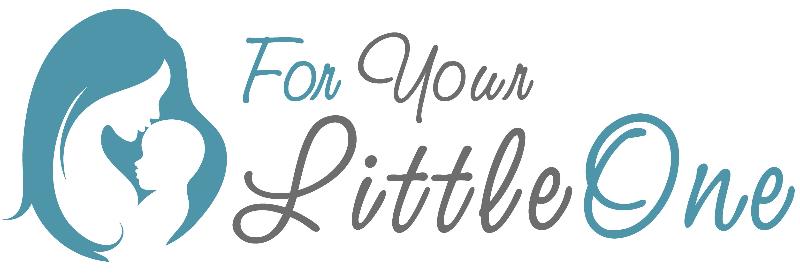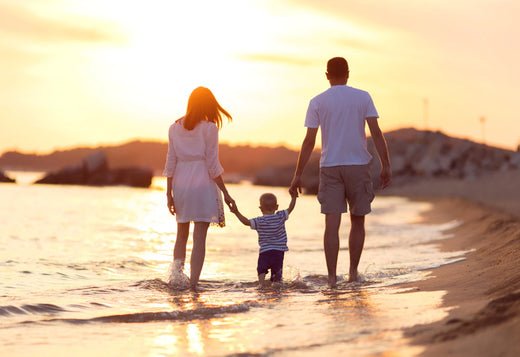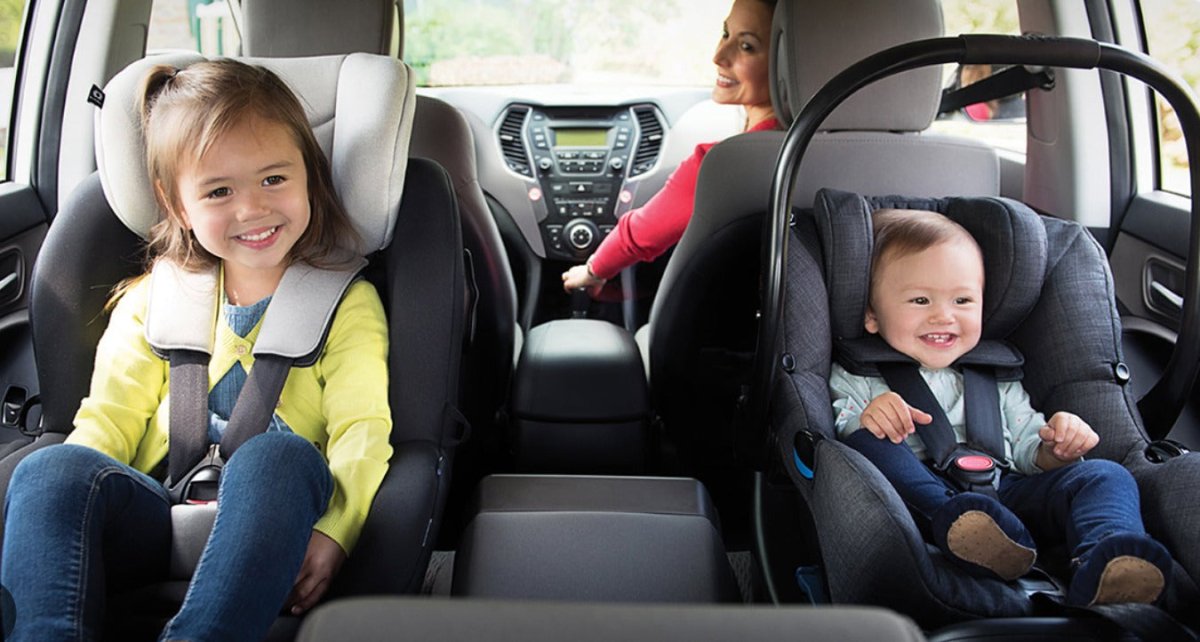Introduction
Congratulations on the arrival of your sweet bundle of joy! Whether this is your first baby or your fifth, you will no doubt feel a bit overwhelmed by the sheer amount of items that seem to be necessary when it comes to caring for an infant. It can be difficult to know what are the absolute necessities and what can wait until later.
Don't worry! We’re here to help with a comprehensive guide to baby essentials for the first three to four months. In this article, we'll discuss which items are absolutely essential for those early days and months with your new little one. We'll also give you tips on how to save money, where to buy quality items and more. Let’s get started!
Must-Haves for the Nursery
Decorating a nursery can be an overwhelming task, but you don't need to buy everything right away. Start with the must-haves:
* A safe sleeping space - This should include a firm mattress and fitted sheet, plus a snug-fitting crib or bassinet. Make sure all products meet safety standards and consider using sleep positioners and other products that have been approved by governing bodies.
* Change table and supplies - Stock up on nappies, wipes, nappie cream. Get a changing table with drawers or shelves to hold essentials within arm’s reach. If possible, place it near the door so you can make quick trips in and out of the room for nappy changes.
* A comfortable chair for feeding - An armchair or rocker is ideal for nursing or bottle-feeding your baby in comfort. Look for one that’s cushioned and easy to clean — many designs come with removable seat covers for easy laundering.
* Nursing pillow - Nursing pillows provide you with a safe, comfortable space to rest your baby’ whilst you share those precious mother and baby moments together.
* Cribs and moses brackets - Rocking cribs and moses baskets are a great invention. They help your baby get to sleep with a gentle swing as well as providing a safe, comfortable, and cozy environment for them to sleep.
These are just a few of the essential items any new parent needs to get started on their baby's nursery—but there's plenty more to consider depending on your lifestyle and your family's needs!
Clothing and Accessories for Babies
Now that you've taken care of the basics, it's time to get your little one all dressed up! Here are some essentials you'll need for the first few months of your baby's life.
- Clothing
Your baby will grow quickly in their first years, so you'll want to buy clothes that can last a while. Start with newborn sizes and then move on to 0-3 months, 6-9 months and 12-18 months. Look for cotton or bamboo fabric for a comfortable fit. You'll need onesies, sleepers and bodysuits for everyday wear; you may also want to pick up some hats and mittens as well.
- Accessories
In addition to clothing, there are lots of other accessories that babies need. Bibs are great for keeping clothes clean during mealtime and burp cloths can help protect your clothes from spit-ups. Socks will keep little feet nice and warm in cold weather, while a lightweight blanket or two can be used both when traveling or at home in lighter weather. Be sure to pack a nappy bag with the essentials like nappies, wipes, ointment, and extra clothes as you may need these things when going out of the house with your baby.
Feeding Supplies for Infants
As your little bundle of joy gets older, it'll be ready to transition from breast milk or formula to solid foods. To make sure you have everything you need, stock up on the following feeding supplies:
- Baby spoons
- Plates and bowls
- Bibs
- Drinking cups
- Burp cloths
- A highchair with a safety harness
You should also consider investing in a few larger items such as a baby food processor or a mixer. These will ensure that all of your little one's meals are nutritious and easy to prepare. If you're looking for something quicker and easier, opt for an all-in-one, single-serve meal kit instead. They will offer your baby all the nutrition they need without having to prepare each meal from scratch.
Safety Basics Around the Home
Before you know it, your little bundle of joy will be rolling around the house. Making sure your home is safe for the baby is essential at this stage. Here are some safety basics to consider:
- Car Seat
The most important item is a car seat. You need to ensure that it's installed correctly in the car so the baby can travel safely. Research various models and pick one that offers the best protection for babies based on their age and weight.
- Baby Gate
Baby gates are useful for keeping little ones contained in an area of the house, such as the living room or a hallway leading to stairs. A baby gate should be sturdy, tall enough, and installed securely in order to work properly.
- Furniture Anchors
Hooking furniture pieces together may sound tedious, but it can be a lifesaver if your baby starts exploring around the house—like pulling themselves up on couches or dressers - as toddlers tend to do! Furniture anchors help keep furniture pieces connected so they don't shift or tip.
- Outlet Covers
Ready-made outlet covers are an easy solution for keeping little fingers away from electrical outlets when curiosity strikes. Look for covers with secure locking mechanisms that stay firmly in place even when tugged at by tiny hands.
Designed to make the fireplace inaccessible by your little one, this fireguard makes for a perfect way to childproof your house.
Nappie Essentials for Babies
Nappies a big part of parenting a newborn, with up to 10 changes per day, so it’s important to make sure you have the right items to make the process as easy as possible. Here are some key Nappie essentials to consider for the first 3 to 4 months:
1 . Nappies
Buy nappies that are specifically designed for newborns. They should have a snug but comfortable fit, and you’ll also want to look for features such as leak protection and breathability.
- Wipes
Wipes come in handy when changing Nappies, either for cleaning up a mess or even just freshening up a baby's bum. You should look for wipes that are gentle and hypoallergenic, and made without harsh chemicals or fragrances.
- Nappie Bag
Having a good Nappie bag is essential when traveling with your baby. It should be spacious enough to store all the essential items you'll need and easy to carry around. Look for one with compartments, pockets, and straps so you can keep everything organized while on the go.
4 . Nappie Pail/Bin
A Nappie bin is also important if you plan on using cloth nappies or even using disposables at home. It helps contain any odours from dirty nappies so your nursery stays smelling sweet and fresh.
Changing mat is a must-have for new parents. It's perfect for keeping your little one comfy and safe when you need to change their nappy.
Toys and Playtime Accessories
Playtime is an essential part of helping your baby's development, and the right toys can make playtime even more fun for you and them. It may be tempting to buy a bunch of flashy, bright new toys for your baby, but there are key items to look for when selecting quality playtime accessories.
- Baby Activity Centres
A baby activity centre is a great way to introduce your baby to their new world. Activity centers come with a variety of colourful lights and sounds that will keep your little one entertained. They also usually include different attachments that teach motor skills and provide tactile stimulation as they explore with their hands.
- Rattles
Rattles are classic toys that have been used by parents and caregivers for centuries. They offer auditory stimulation as babies shake it up and make noise. Rattles also help babies learn hand-eye coordination as they can visually track the rattle moving around in their hands.
- Soft Toys
Not all toys need to make sounds or have bright colors. Soft toys such as stuffed animals serve multiple purposes. Not only do they provide sensory stimulation, like soft fabrics against the skin, but they can also become companions in the long hours spent alone in the crib on rainy days or during naps throughout the day.
Conclusion
Taking care of a baby can be intimidating at first, but it can also be incredibly rewarding. It's helpful to have a list of baby essentials for the first 3 to 4 months to make the transition a bit easier. Although the list may seem daunting at first, it can be broken down into small, manageable tasks. By having the right baby essentials, you can feel more confident and prepared for the months ahead.
Shopping for baby items can be challenging, but also a lot of fun. Don't be afraid to get creative with how you find the items you need. Keep in mind that you don’t need to get everything right away, and it's perfectly normal to feel overwhelmed. Take it one step at a time and remember that you don’t have to do it all on your own. Visit our site For Your Little One, and you will get what you want.


